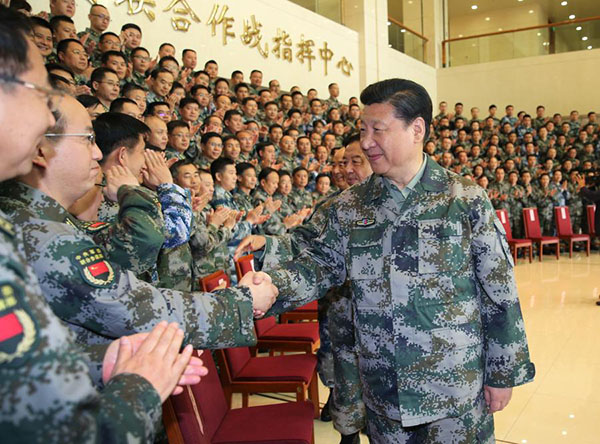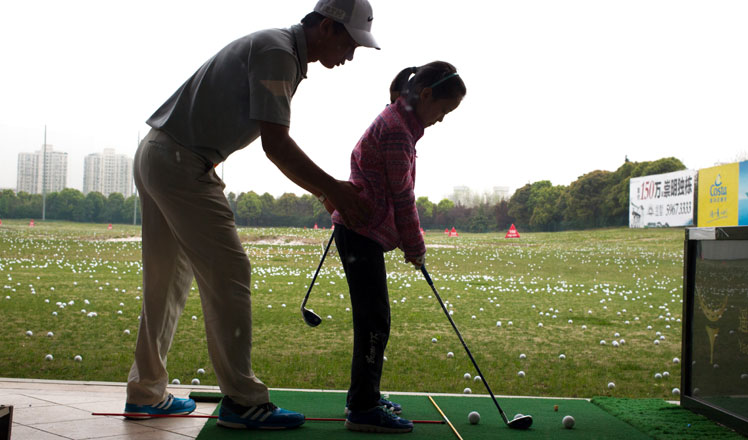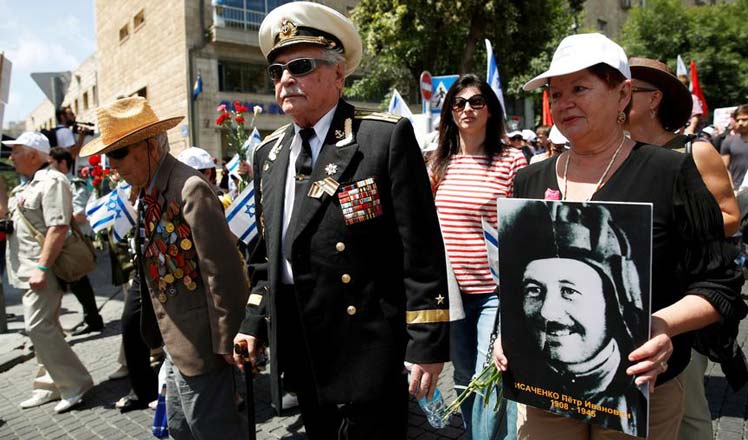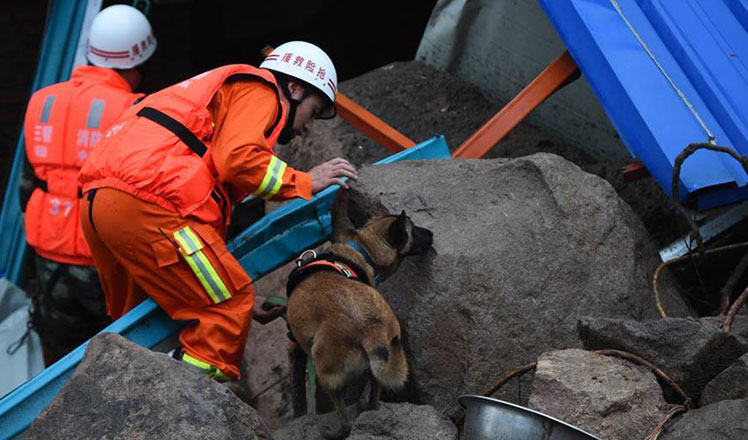New rule targets military corruption
Updated: 2016-05-09 08:02
By Zhao Lei(China Daily)
|
||||||||
 |
|
Chinese President Xi Jinping inspected the Central Military Commission (CMC) joint battle command center in Beijing on April 20, 2016. [Photo/Xinhua] |
Termination of the Chinese military's commercial activities will strongly lessen incentives for military-related corruption while consolidating the PLA's combat capability, military experts said.
"Some commercial fields engaged in by the People's Liberation Army units are actually prone to corruption and other misconduct. The corruption case of Gu Junshan and those of other senior officers were closely connected to their involvement in businesses," said Senior Colonel Gong Fangbin, a political education researcher at PLA National Defense University, referring to Gu, former deputy head of the PLA's logistics authority, imprisoned in a embezzlement and bribery case.
"The military's involvement in the commercial sector has also aroused suspicion about whether it properly uses defense funds," he added. "Moreover, there have been concerns that the PLA would use its advantages in a race for profits and overpower civilian competitors."
The closure of the PLA's businesses would focus all of its concentration on honing combat readiness, he said.
On Saturday, the PLA and the Armed Police Force selected 17 units to be the first to close their commercial activities such as housing rentals, medical services and hospitality.
The move came after the death of Wei Zexi, a young university student who received experimental cancer treatment at a military hospital in Beijing, triggering a huge public outcry.
General Zhao Keshi, head of the Central Military Commission's Logistical Support Department, said on Saturday that the chosen units are tasked with exploring effective ways to shut down businesses.
In March, the Central Military Commission ordered the PLA and the APF to end all commercial activities within three years. It told units to stop signing new contracts and to negotiate with civilian clients to try to cancel existing ones.
Gong said commercial activities usually exist in military hospitals, performance groups and publishing houses, major targets of the ongoing troop cuts announced by President Xi Jinping in September.
- Breast cancer deaths fall, but cases rising
- Doctor's death prompts calls for protection of medical staff
- Survivors found as dozens buried in landslide
- 60% of career women say no to second child, report finds
- Captain held after vessels collide at sea
- Human rights practices reviewed 30 years on from UN declaration

 Canada getting on top of Alberta wildfire, Fort McMurray off limits
Canada getting on top of Alberta wildfire, Fort McMurray off limits
 Young golfers enjoy the rub of the green
Young golfers enjoy the rub of the green
 71st anniversary of victory over Nazi Germany marked
71st anniversary of victory over Nazi Germany marked
 Post-90s girl organizes others’ messy wardrobes
Post-90s girl organizes others’ messy wardrobes
 Landslide hit hydropower station in SE China
Landslide hit hydropower station in SE China
 World's first rose museum to open in Beijing
World's first rose museum to open in Beijing
 Teapot craftsman makes innovation, passes down techniques
Teapot craftsman makes innovation, passes down techniques
 Raging wildfire spreads to more areas in west Canada
Raging wildfire spreads to more areas in west Canada
Most Viewed
Editor's Picks

|

|

|

|

|

|
Today's Top News
Liang avoids jail in shooting death
China's finance minister addresses ratings downgrade
Duke alumni visit Chinese Embassy
Marriott unlikely to top Anbang offer for Starwood: Observers
Chinese biopharma debuts on Nasdaq
What ends Jeb Bush's White House hopes
Investigation for Nicolas's campaign
Will US-ASEAN meeting be good for region?
US Weekly

|

|







